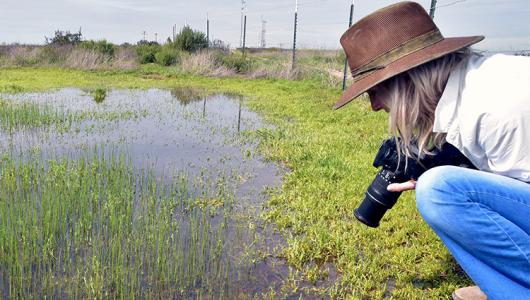This Friday visit Ziibimijwang Farm in Emmet County, Michigan. The farm is a link to the past and the future for the Little Traverse Bay Bands of Odawa Indians.
Growing the Farm
“The goal of Ziibimijwang Farm is food sovereignty and creating new tribal farmers,” said Joe VanAlstine, chairperson of Ziibimijwang, Inc., a non-profit formed by the tribe to oversee the 311-acre farm.
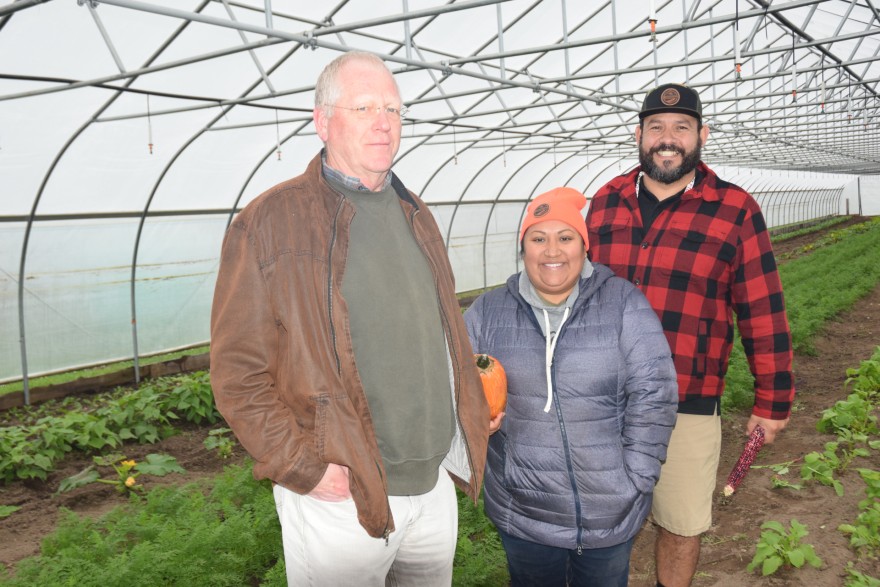
The tribe purchased Ziibimijwang Farm in 2012. “The name means ’the place where food grows near the river,’ for its location near the Carp River,” said Joe. The farm includes about 100 tillable acres with forest making up the rest.
Bill Borgeld, local district conservationist for USDA’s Natural Resources Conservation Service, began working on projects with the tribe’s natural resources department. These projects ranged from tree planting and fish passages to a tribal aquaculture pond for raising walleye. When the tribe decided to buy a farm, they contacted Bill for assistance.
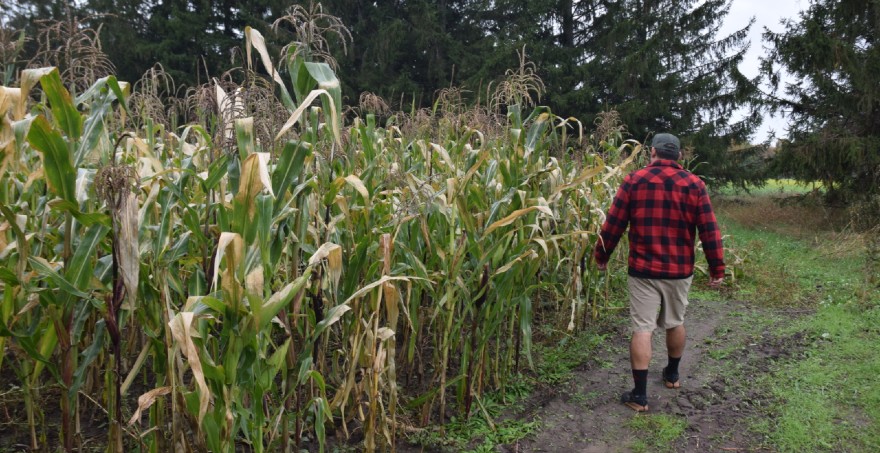
Working with USDA
While operating the farm has been a challenge, they had a good growing season in 2019. Products grown on the farm are sold at area farmers markets, tribal events and at Minogin Market, a tribal-owned store in Mackinaw City, Michigan. The farm also sells wholesale to several area restaurants.
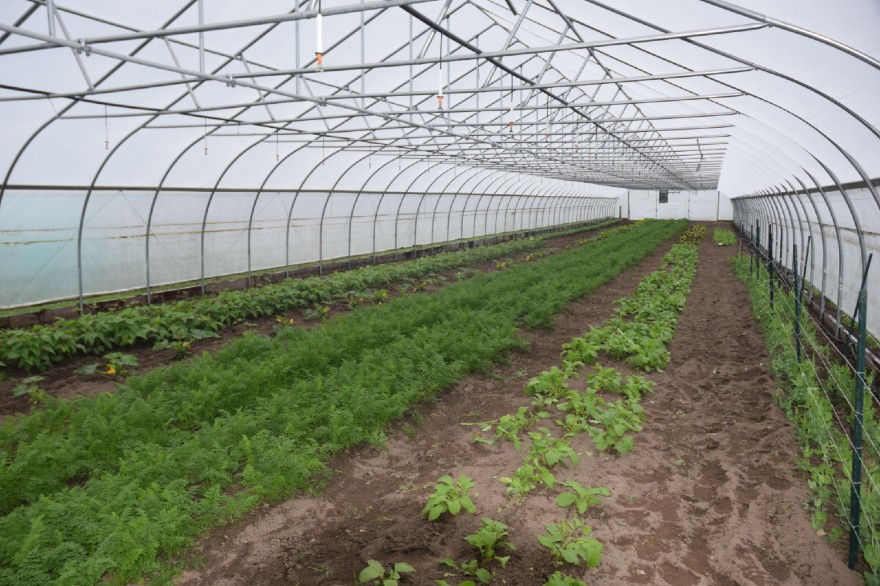
Some of the produce included in 2019 sales were grown in two seasonal high tunnels. One tunnel was built with funding from the NRCS Environmental Quality Incentives Program. With a goal of providing locally grown tomatoes, the farm sold their first tomatoes in July 2019. The tribe added heating to both of their tunnels and plan to grow in them year-round.
The tribe is also utilizing EQIP funds for planting trees and shrubs that may be better adapted to warming conditions. Some of the species planted include shagbark hickory, American plum, tulip tree, American hazelnut, and Allegheny serviceberry. The tribe will monitor the plantings to see which species are best suited to conditions on the farm.
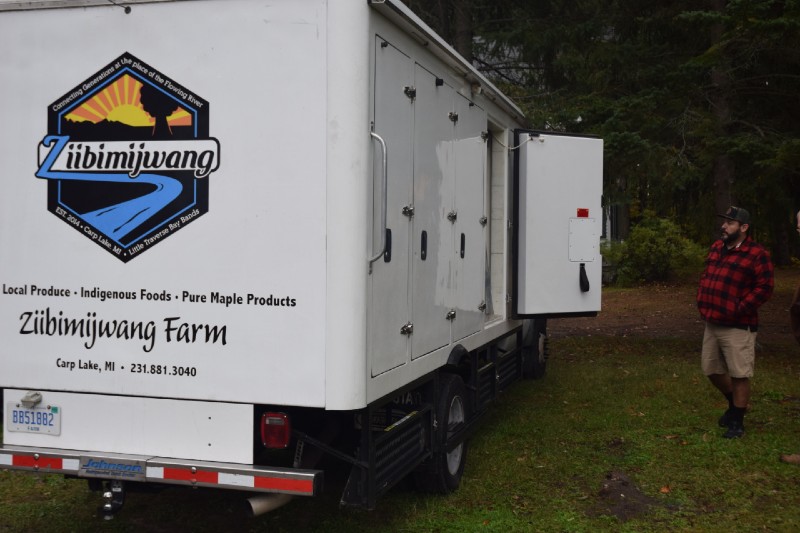
Farm of the Future
The farm has played an important role in reconnecting the tribe with its agricultural heritage and other traditions. The tribe learned that a variety of heirloom corn in a collection at the University of Michigan was last grown by their ancestors. “They are now growing the corn and teaching tribal members how to process it into corn meal and hominy,” said Rosebud Schneider, market manager for the farm.
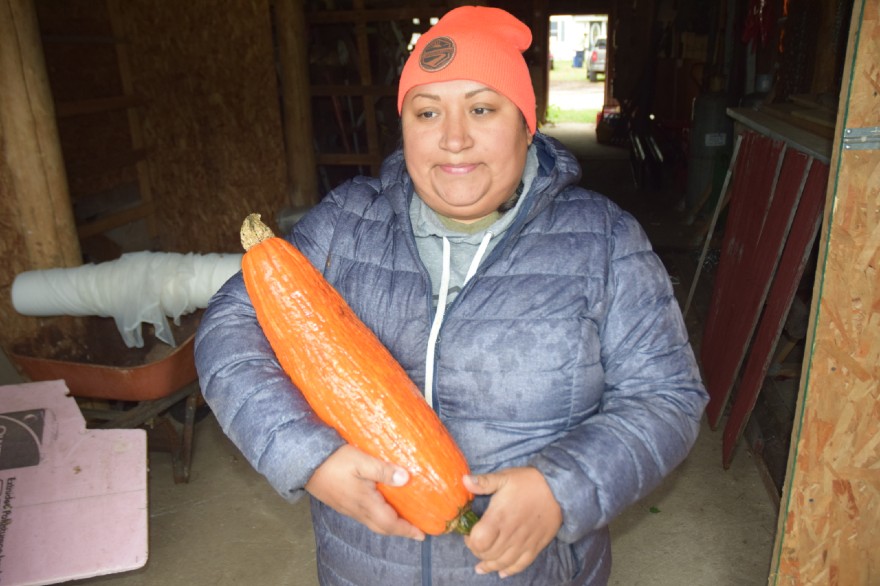
The farm has a three-sisters garden that includes heirloom varieties of corn, squash, and beans. “The three plants are staples and complement each other when grown together,” said Joe. Tribal members are invited to help plant and harvest and learn how to preserve and utilize food grown on the farm.
Skill sharing is an important part of the operation, but it extends beyond farming. To get tribal youth involved in agriculture, the farm has hosted workshops for tribal youth to learn how to make items such as lacrosse sticks and drums with items harvested from the farm.
Those involved with the farm have no shortage of ideas of how to further utilize the farm in the future. Joe, who also works for the tribe as its food distribution manager, would like to provide more traditional foods to tribal members who receive food through USDA programs. He would also like to see the farm become a food hub for northern Michigan., “The Odawa have always been traders,” he says.
More Information
Each Friday, visit local farms, ranches, forests, and resource areas through our #FridaysOnTheFarm stories. Meet farmers, producers, and landowners who are working to improve their operations with USDA programs.
USDA offers a variety of risk management, disaster assistance, loan, and conservation programs to help agricultural producers in the United States weather ups and downs in the market and recover from natural disasters as well as invest in improvements to their operations. Learn about additional programs.
For more information about USDA programs and services, contact your local USDA service center.
Brian Buehler is the public affairs specialist for NRCS in Michigan.


